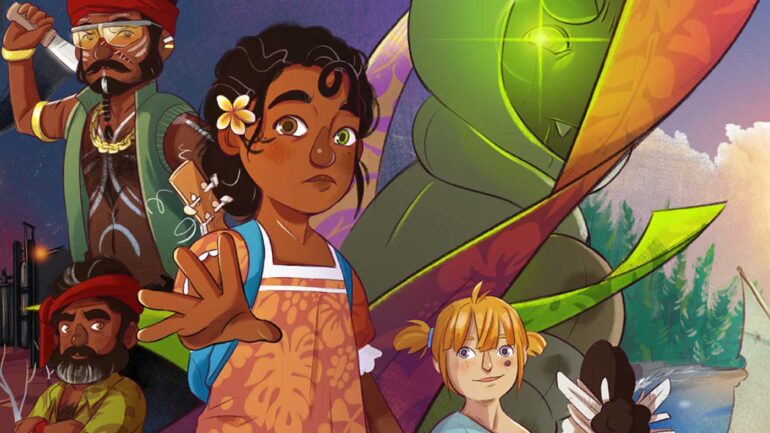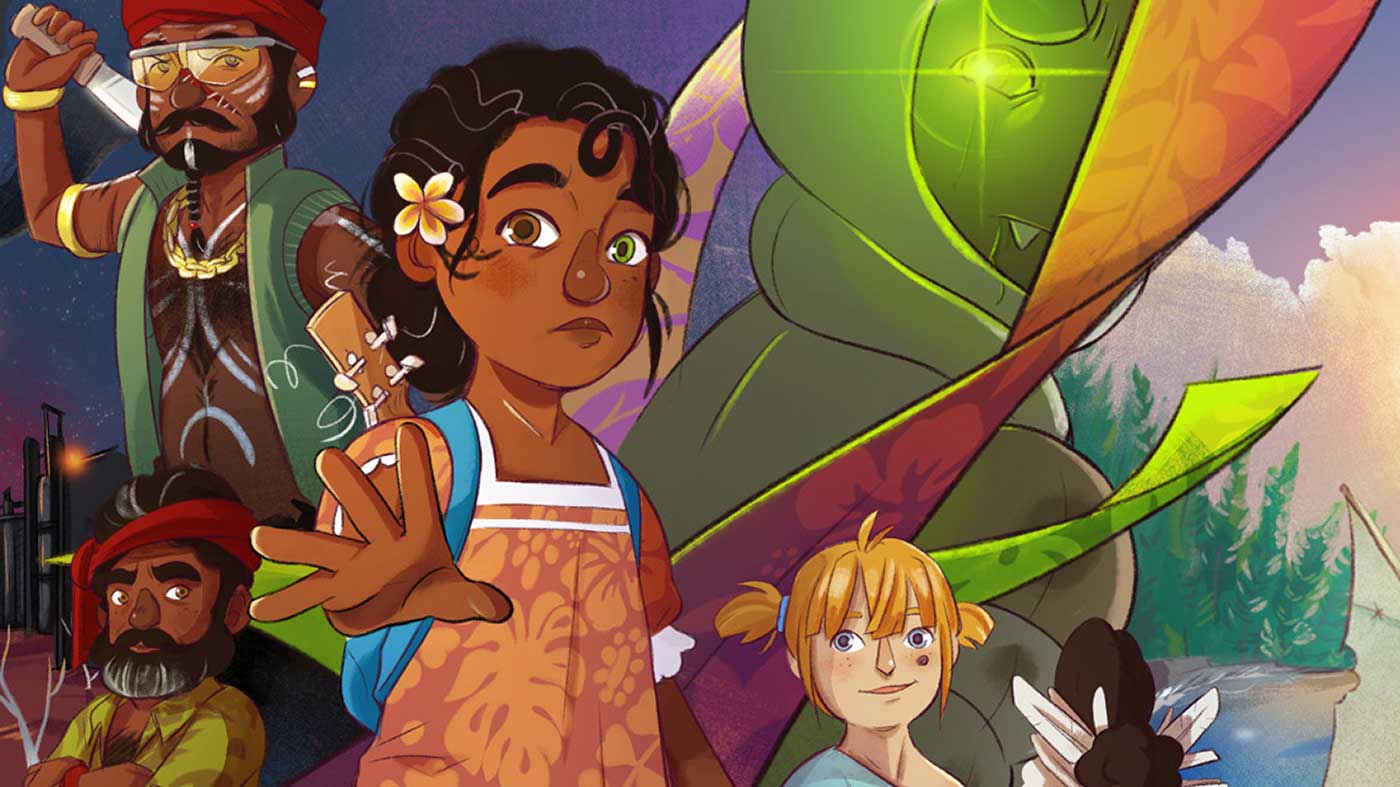One of the greatest appeals of a good indie video game, to me, is knowing I’m playing something created with passion. The gulf in production values between a blockbuster release and a passion project from a small studio might be obvious at times, but the same can be said of the creativity and ingenuity between them.
Tchia is a fantastic example of this, as both a game that often feels compromised by its ambitions but never once seems burdened with them. It’s relentlessly charming and packed with the kinds of ideas that the churning, AAA machine wouldn’t touch with a million-dollar budget. It’s also intensely cultural, coming from Awaceb in New Caledonia (this is only their second game!) and steeped in local history and talent. It’s the kind of game where a handful of flaws is far from cause to look past it – it’s still an unforgettable and highly recommended experience.
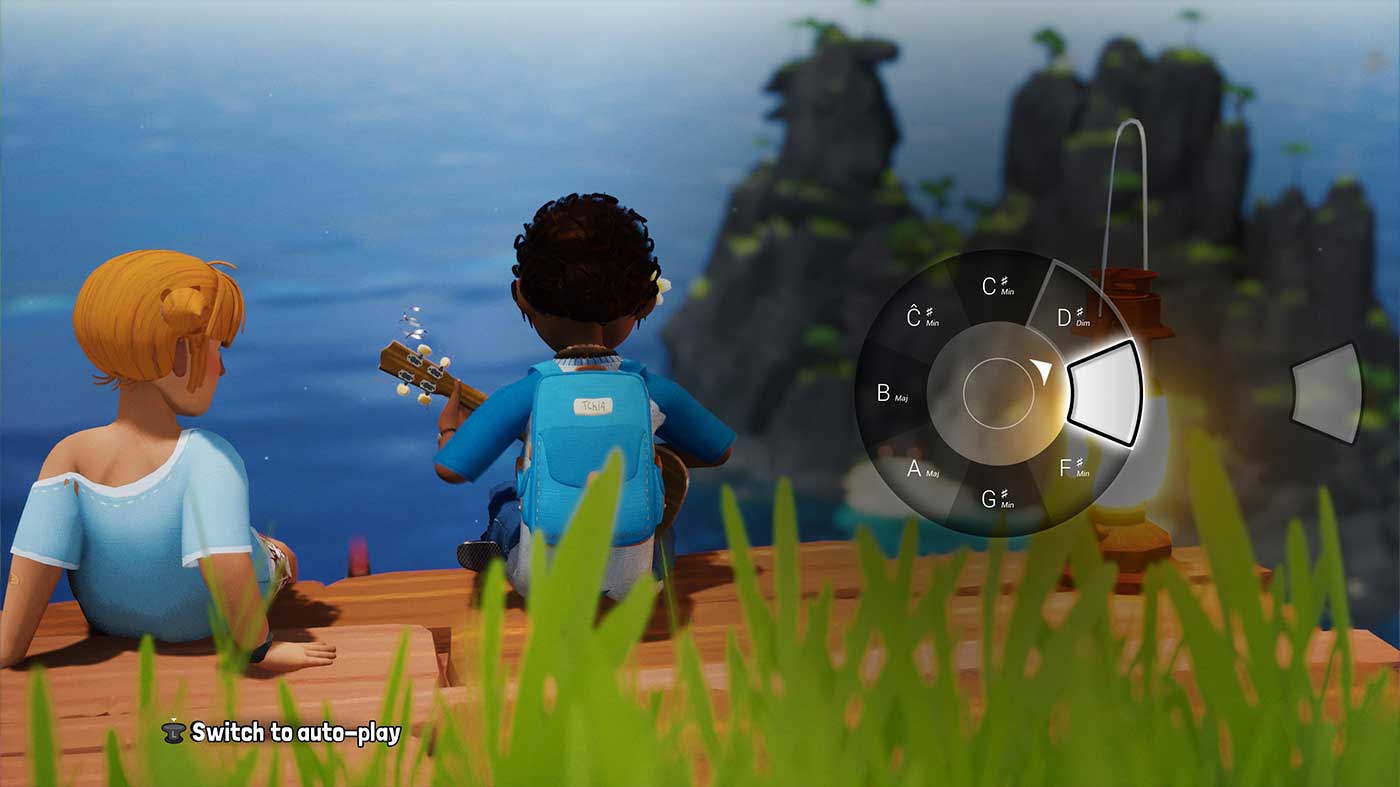
Cast as the game’s titular heroine, Tchia introduces players to a fictional archipelago based loosely on New Caledonia, and one ruled with an iron first by an evil god named Meavora and his army of magical fabric warriors. After Meavora’s followers kidnap Tchia’s father and leave her stranded on her tiny island home, she decides to set out to the greater islands and formulate a plan to take him down and rescue his prisoners. Without giving anything away, while the game tells a fairly straightforward tale, there are actually some rather powerful moments told with a lot of nuance and from some refreshingly unique perspectives.
VIDEO PRESENTED BY PLAYSTATION VR2. CLICK TO LEARN MORE.
Although there are some jarringly dark moments peppered throughout (fair warning if violence towards animals and infants could alarm you – there’s a bit of that here, though it’s all rather “cartoony” and there’s a Family Filter option), Tchia is also packed with charm with plenty of gorgeous and well-composed cutscenes with some genuinely great comedic timing at moments. Its narrative beats are constructed with the kind of care and production I’d expect from a CG-animated series on a major network. It’s also all been recorded in traditional languages by local talent, which is fantastic. Tchia is a game that doesn’t simply use culture as set dressing, it’s embedded in everything from the stories it tells and the way it tells them, to how it plays and what it wants players to take away from it.
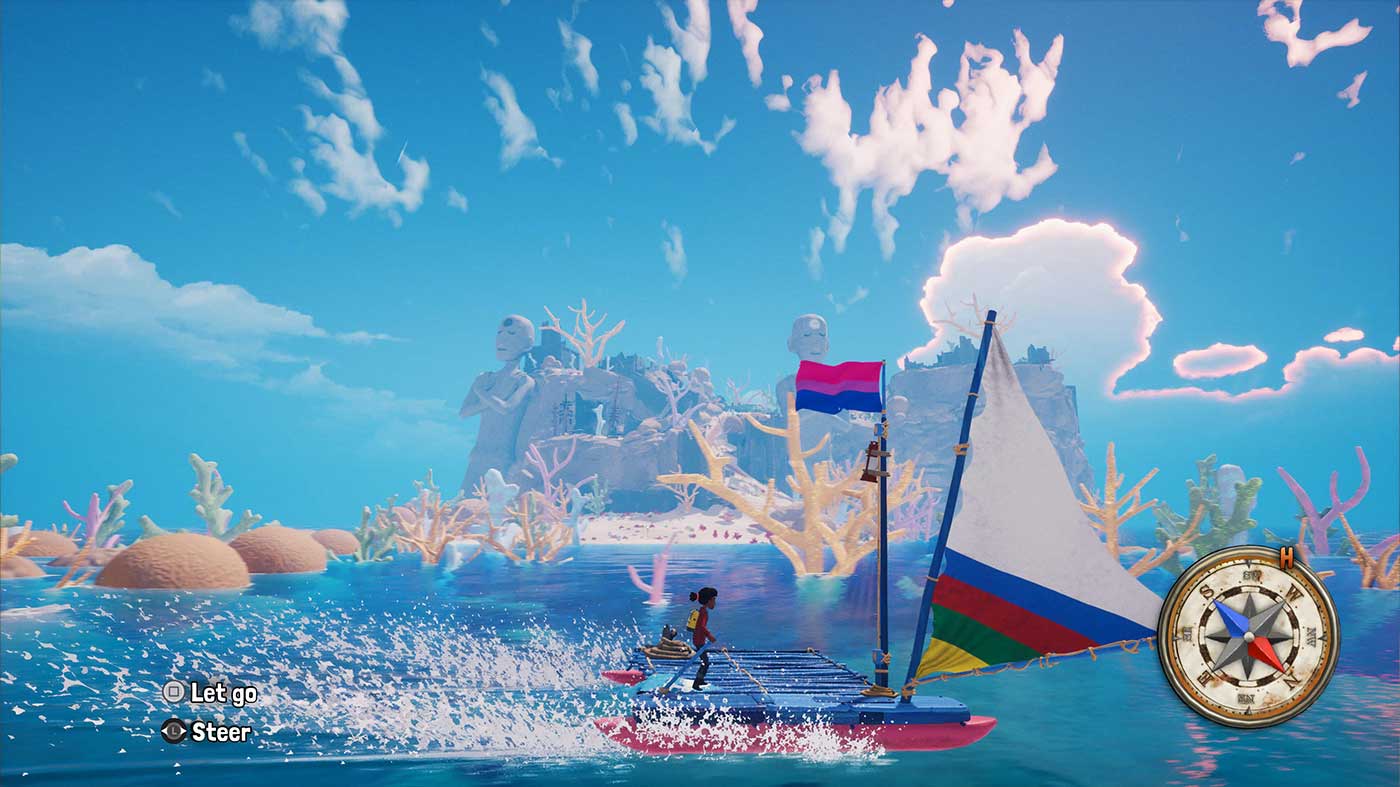
As far as playing goes, what’s here is a freeform adventure in a sizeable open world made up of large and small islands with plenty of characters to meet, secrets to find and challenges to surmount. You’ll be guided throughout by a series of overarching quests, most of which task Tchia with going to specific places or collecting particular items, but you’ll more often than not find yourself simply exploring of your own accord, drawn to any number of points of interest that catch your eye.
Luckily, the act of getting around is one of the game’s greatest joys thanks to its unique mechanics. While you can walk, sail and use limited fast travel, by far the best way to traverse the game’s varied environments is to use Tchia’s power of Soul Jumping. Tchia can use her power to possess any animal in the game, as well as a huge number of inanimate objects, and take control of them. Some will have their own abilities used to solve light puzzles, like a crab’s pincers to cut through ropes or a lantern’s explosive heat to set things ablaze, but more often than not you’ll Soul Jump into a nearby bird to quickly fly across the islands or get real tricky and start flinging yourself through the air as an errant coconut.
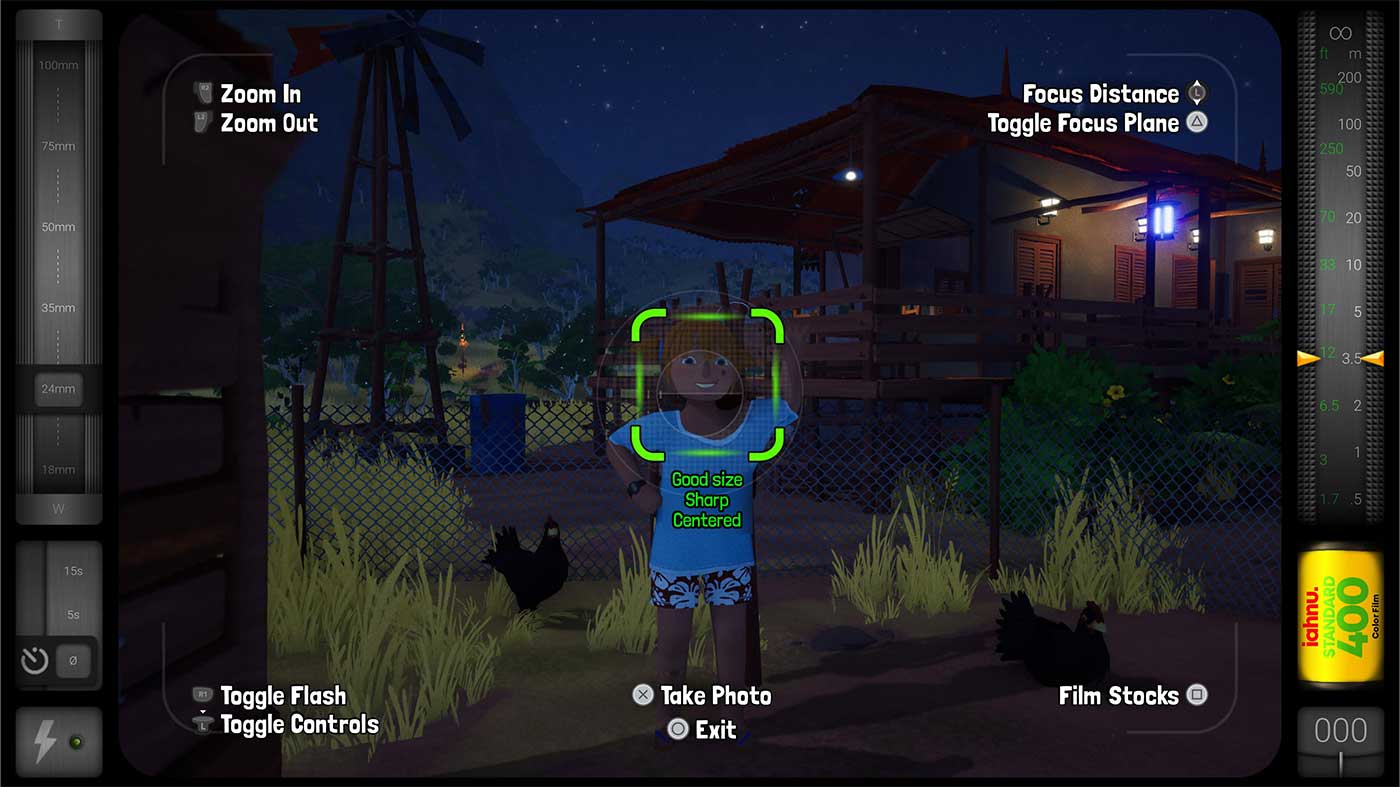
Soul Jumping adds a ton to the experience of solving otherwise basic puzzles too, not least because the game has an admirable disregard for logic. Need to dig up a nearby treasure chest? Jump into a dog and get digging. No dogs around? Go to the next village over, find one, stuff it in your backpack next to the four bunches of bananas, dodgy radioactive canister and multiple live birds and return to the dig site with it. A prevailing design ethos of Tchia’s is “why not?” and I’m absolutely here for it.
That ideal goes across the board, too. Awaceb’s approach to gameplay systems in Tchia is “who cares about gameplay systems?” and instead the studio seems to have just created whatever gameplay mechanics it wanted to at any given moment. It gives the game a lovingly handcrafted quality and invites the player to be playful and expect the unexpected. One moment you’ll be slingshotting off a treetop to then Soul Jump mid-air into a soaring bird, fly across a city and jump back out to perform a 720 triple frontflip into the ocean, the next you’re playing ukulele alongside a tribe of magical, wooden people in a secret underground shrine. It’s not quite the emergent sandbox that was Breath of the Wild, but it has a similar playfulness – more like a toy box, I suppose.
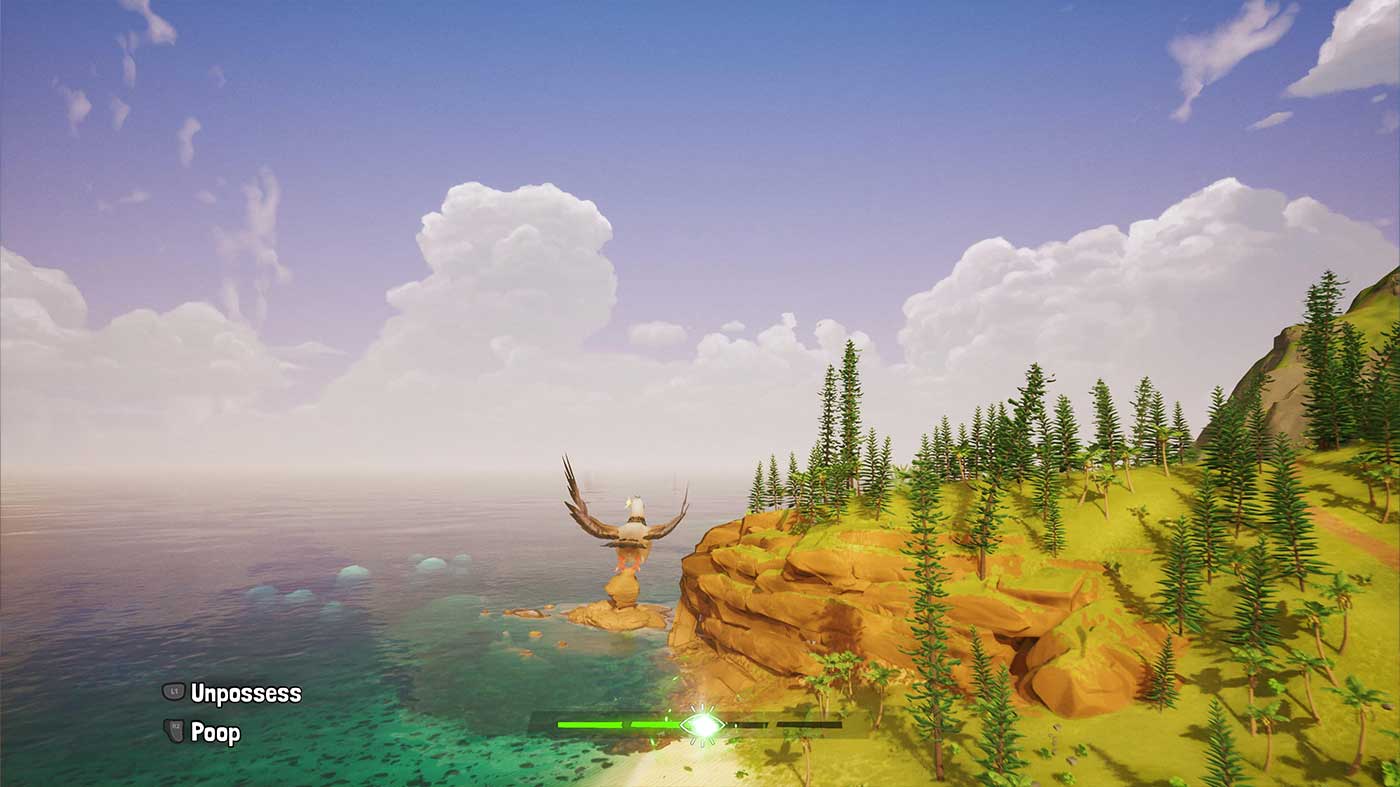
Tchia also comes equipped with some great tools, like a ukulele that winds up imbued with some magical musical powers that allow her to learn simple tunes that have various effects like changing the time of day, summoning creatures or items or giving her temporary unlimited breath underwater. The ukulele is a constant, there are actually quite a number of musical play-alongs embedded in the story with songs recorded with Kanak choirs and musicians which are all beautiful, as is a small raft for sailing the open ocean, both of which can be customised quite a bit along with Tchia’s outfit as you find and unlock new cosmetic bits and pieces.
I’m especially fond of the tactility of everything in the game. Everything feels hands-on and, more often than not, if there’s something to be done you’ll be doing it in real-time. Even Tchia’s version of a “Photo Mode” has her using a camera with manual controls (including a tripod for timed shots) and then popping over to the nearest photo kit to develop all her film before it gets added to the in-game gallery.
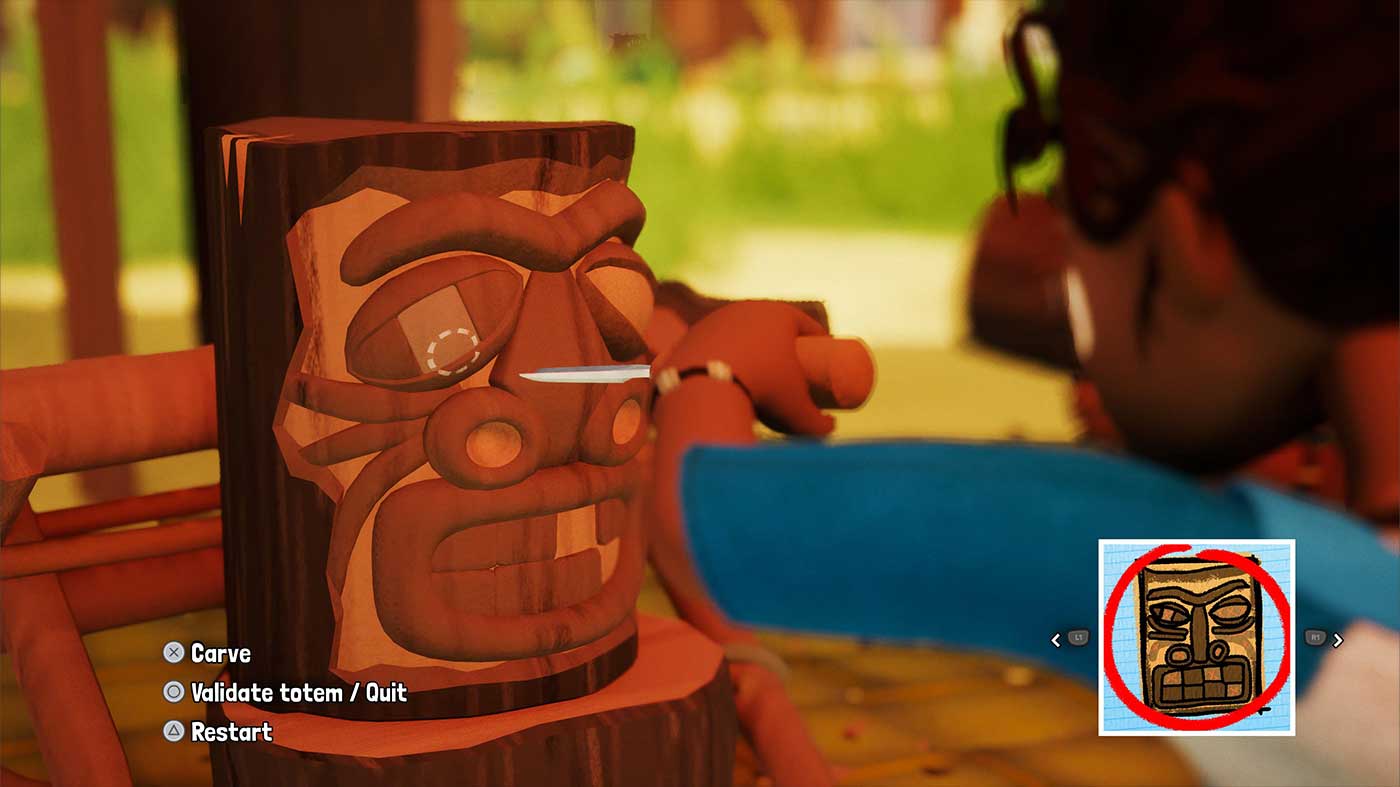
Not all of Awaceb’s decisions pan out, though. For every stroke of genius like the in-game map that doesn’t actively show you Tchia’s location, instead requiring some proper orienteering and environmental context, there’s something equally baffling like a lengthy, late chapter consisting of mechanically monotonous and aesthetically dull “combat” sequences in some factory locations that has none of the charm of the rest of the game. Likewise, while the game’s simple visuals can often make for some stunning landscapes thanks to Unreal Engine 4-powered effects and massive draw distances, it rarely holds up to close scrutiny – especially in built-up areas where buildings and structures just look flat and unfinished.
The game feels woefully unpolished at times too, full of performance issues There are some egregious bugs as well, even after a few updates on PS5, but despite often finding myself stuck in some environmental geometry or unable to progress a quest, Tchia includes at least one immensely thoughtful quality-of-life feature in the ability to just skip entire gameplay segments from the pause screen. Not feeling a particular mini-game? Frustrated and running around trying to fetch a multitude of items for a quest? Skip it. Skip a quest, skip a chapter, skip the whole game if that’s something you wanted to do for whatever reason. I adore that it’s an option – and one that seems to work without a hitch which I’m quite impressed by.
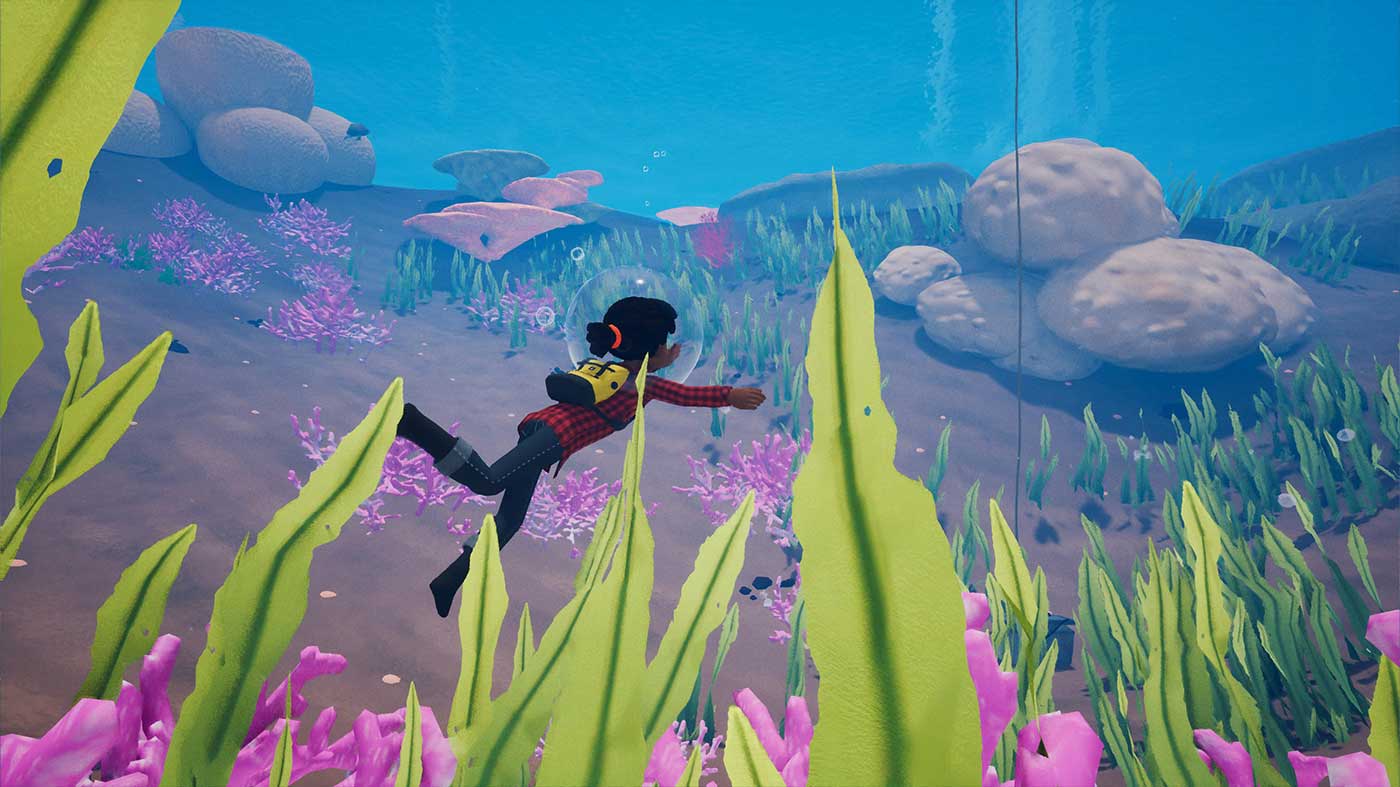
In the first hour or so of playing Tchia, I honestly had no idea what to make of it. The care, and reverence for culture and local talent were clear, but the execution wasn’t. Another eight or so hours later, as I rolled the credits (and witnessed the game’s stellar ending), I realised I didn’t care about the latter when the former – in addition to the frequently creative and charming gameplay design on offer – was so utterly compelling. Tchia is messy, and sometimes weird, but usually in all the best ways. It’s rare a game feels this refreshing and earnest without any level of pretension or restraint, and it’s all the better for it.


